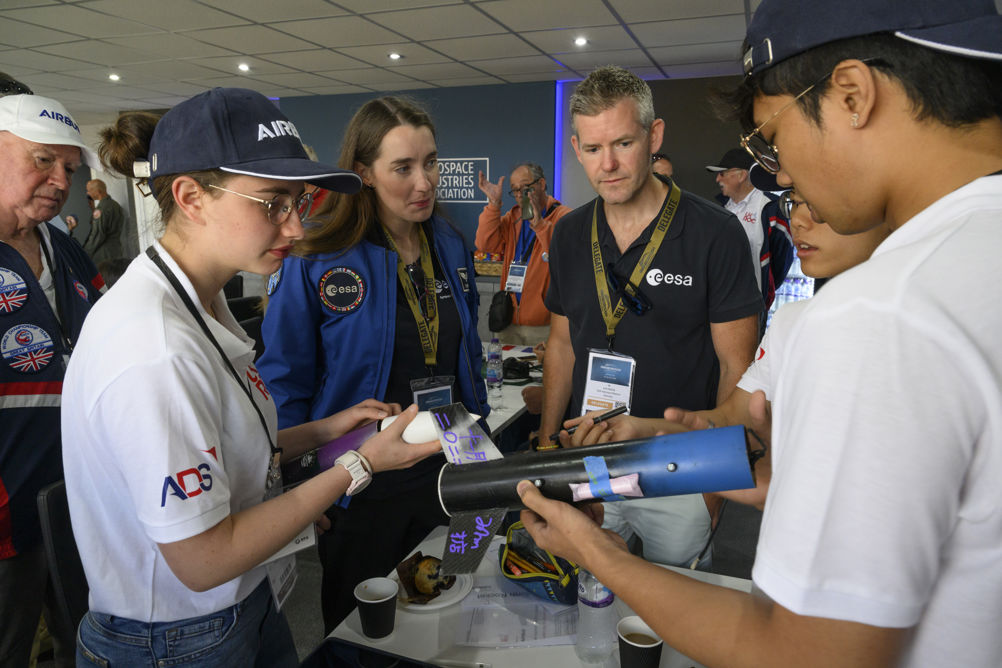Employment in the UK’s defence sector increased 16 per cent between 2013 and 2023. Providing immense social value, the contribution of our defence sector to the economy spans not only direct capability, protection of the realm and technological innovation, but housing, jobs, and local investment. The UK’s defence and security sectors drive technological innovation, whether that’s contributing to the science behind the gadgets we use in our every-day lives or providing the investment for the next generation of green technologies that will be vital in helping us reach our net zero targets.
Growing global competition, proliferating international security challenges, and the rapid pace of technological development are challenges that our sector must address. That said, all of the opportunities or setbacks are found in the face of the most critical of hurdles: the need for the right talent to fulfil demand and secure UK advantage in an increasingly unstable geopolitical environment. In fact, two thirds (66 per cent) of respondents to an ADS survey said that workforce and skills shortages will have a significant impact on business growth opportunities.
Despite an average salary of £39.9k, 14 per cent higher than the economy’s average, our sector struggles to recruit enough talent, and in the right roles, to fulfil our national and international obligations to collective security.
There are some 164,000 people employed in the defence sector at ADS’ last estimate, but across our members we know that there are at least 10,000 stated vacancies. The truth is, that number is likely far higher.
It is critical for our collective security that we fulfil our obligations to our most important asset: our people. Developing a highly rewarding, not to mention well-paid career in defence should be seen as a goal for people in every generation. So, what does that take?
In demand skills
The shifting technologies involved in the UK’s defence sector have fundamentally changed both the volume and scope of job roles within the industry.
With a range of highly skilled jobs in direct advanced manufacturing techniques, cybersecurity, software development, artificial intelligence and digital services, the opportunities within defence are vast. The ongoing integration of digital technologies with traditional defence equipment and infrastructure demands a workforce that is versatile, skilled, and continuously evolving. Engineers, IT specialists, data analysts, and project managers form the backbone of the sector, driving innovation and efficiency.
Technical skills are paramount, particularly in areas such as aerospace engineering, naval architecture, and systems integration. Direct manufacturing jobs – however – remain our most critical vacancies, with the greatest opportunity for progression. Skilled engineers form the backbone of our industry, with multiple routes to entry. ADS’ latest figures highlight the employment of some 8,100 apprentices in our sector, with opportunities ranging from nuclear engineers, fitters, cybersecurity personnel, quality assurance, software and systems integration.

It is of course important to remember that our sectors do require certain role and screening requirements that can complicate recruitment. This can be more prevalent in the defence sector with limitations regarding nationality, coupled with a perception gap that can make roles a ‘harder sell’.
Employees in defence are resilient, agile problem solvers, and we often see the ‘transfer’ of likeminded individuals from adjacent advanced manufacturing sectors who share our values. Defence recognises that it is not alone in our search of skilled individuals, and we are proud to work closely with our counterparts in advanced manufacturing on transferable STEM initiatives, re-entry to work schemes and more to meet the ongoing demand for talent.
Addressing the skills challenge
Developing the workforce that is critical to securing UK advantage in defence is reliant on a cross-cutting partnership between industry, government, officials and the education sector.
ADS’ asks of government in this area – developed in collaboration with our members, who span 1300 organisations and all levels of the industrial value chain – boil down to the following:
To support our sectors’ ability to deliver on their obligations to our economy, the government should tackle development of a workforce fit for the future through a cross-departmental, long-term workforce strategy. This strategy should include investments in education and training, support for STEM subjects, promotion of productive and well-paid careers in our sectors, early integration with industry requirements, and reforms to the Apprenticeship Levy to allow for greater flexibility, including increasing the levy transfer percentage from 25 to 35 per cent.
It should involve collaboration between the Department for Education, the Department for Business and Trade, and other relevant departments for our sectors, such as the Ministry of Defence, Home Office, and Department for Science, Innovation, and Technology. This strategy should aim not only to address the current skills gap, but also to ensure a steady supply of skilled workers for the future. Additionally, it should establish an immigration system that enables UK businesses to attract international talent when essential roles cannot be filled domestically.

We were buoyed by the Prime Minister’s announcement of Skills England at Farnborough International Airshow, recognising on an international stage the role the UK workforce has in our collective future. The autumn legislative and political agenda should contain more focus on this area.
ADS hears from our larger members that they can be oversubscribed in some roles - a fantastic achievement - while our smaller businesses, no less pivotal to our economy, can struggle. To address this imbalance, we’re actively seeking practical solutions to increase engagement across the board - to get those roles filled, capability delivered, and to secure the UK’s advanced manufacturing advantage.
On a practical level, at ADS we are actively seeking partnerships - whether that’s through STEM events, widening participation schemes, mentoring programmes, policy agendas, practical job finding support, or partnerships with organisations who are leading the way in this area.
STEM learning initiatives
Initiatives aimed at enhancing STEM education from an early age and fostering interest in defence-related careers is vital, alongside continuous professional development and re-skilling of existing employees. All are essential to keep pace with technological advancements.
There is undeniable crossover between many of our advanced manufacturing sectors’ skills need, and indeed, more than 40 per cent of ADS’ members engaged in defence are also engaged in space activities. STEM initiatives currently facilitated by ADS on behalf of the industry include the UK’s Youth Rocketry Challenge, where budding engineers aged 11-18 are tasked with creating a rocket to carry the most fragile payload: an egg. The UK currently holds the International Youth Rocketry title for the second year running, after soaring to victory at the 2024 finals held at Farnborough International Airshow.
In summary, the UK’s defence industry is at a crucial juncture, facing both significant challenges and opportunities. As geopolitical tensions remind us of the need for robust defence capabilities, the industry’s ability to innovate and adapt rests on its skilled workforce. Addressing the skills gap through comprehensive education and recruitment strategies will not only secure the future of the defence sector but also ensure the continued economic prosperity and security of the nation. Investing in skills in our defence sector is not merely an industrial necessity, but a national imperative.











IET sounds warning on AI doll trend
I agree that we need to reduce cooling water demand for servers. And yes, generative AI consumes a large amount. But what about BitCoins? Their...